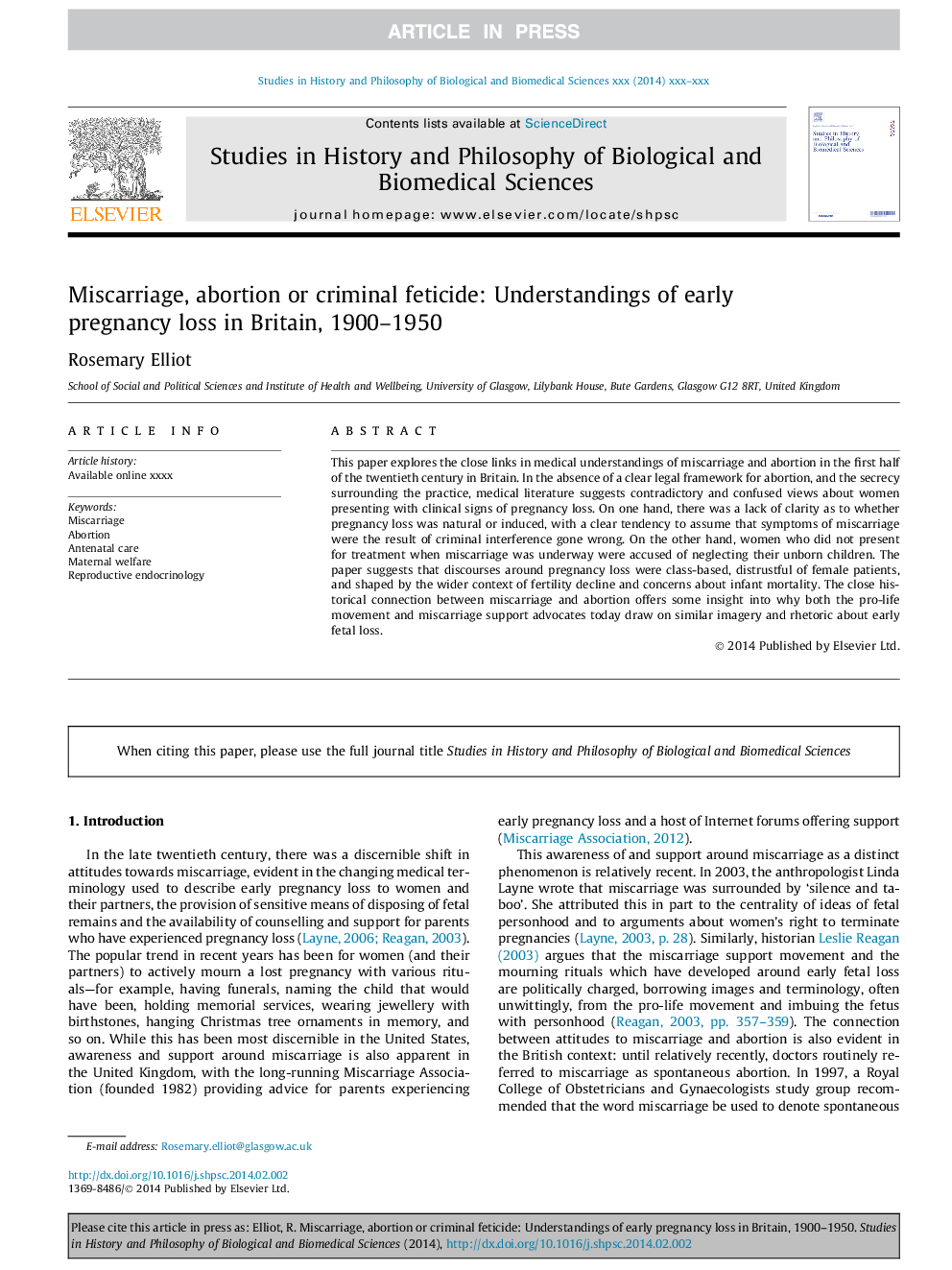| Article ID | Journal | Published Year | Pages | File Type |
|---|---|---|---|---|
| 7552565 | Studies in History and Philosophy of Science Part C: Studies in History and Philosophy of Biological and Biomedical Sciences | 2014 | 9 Pages |
Abstract
This paper explores the close links in medical understandings of miscarriage and abortion in the first half of the twentieth century in Britain. In the absence of a clear legal framework for abortion, and the secrecy surrounding the practice, medical literature suggests contradictory and confused views about women presenting with clinical signs of pregnancy loss. On one hand, there was a lack of clarity as to whether pregnancy loss was natural or induced, with a clear tendency to assume that symptoms of miscarriage were the result of criminal interference gone wrong. On the other hand, women who did not present for treatment when miscarriage was underway were accused of neglecting their unborn children. The paper suggests that discourses around pregnancy loss were class-based, distrustful of female patients, and shaped by the wider context of fertility decline and concerns about infant mortality. The close historical connection between miscarriage and abortion offers some insight into why both the pro-life movement and miscarriage support advocates today draw on similar imagery and rhetoric about early fetal loss.
Related Topics
Life Sciences
Agricultural and Biological Sciences
Agricultural and Biological Sciences (General)
Authors
Rosemary Elliot,
